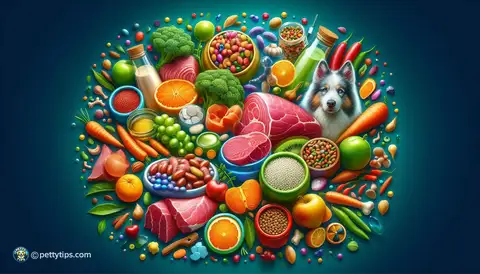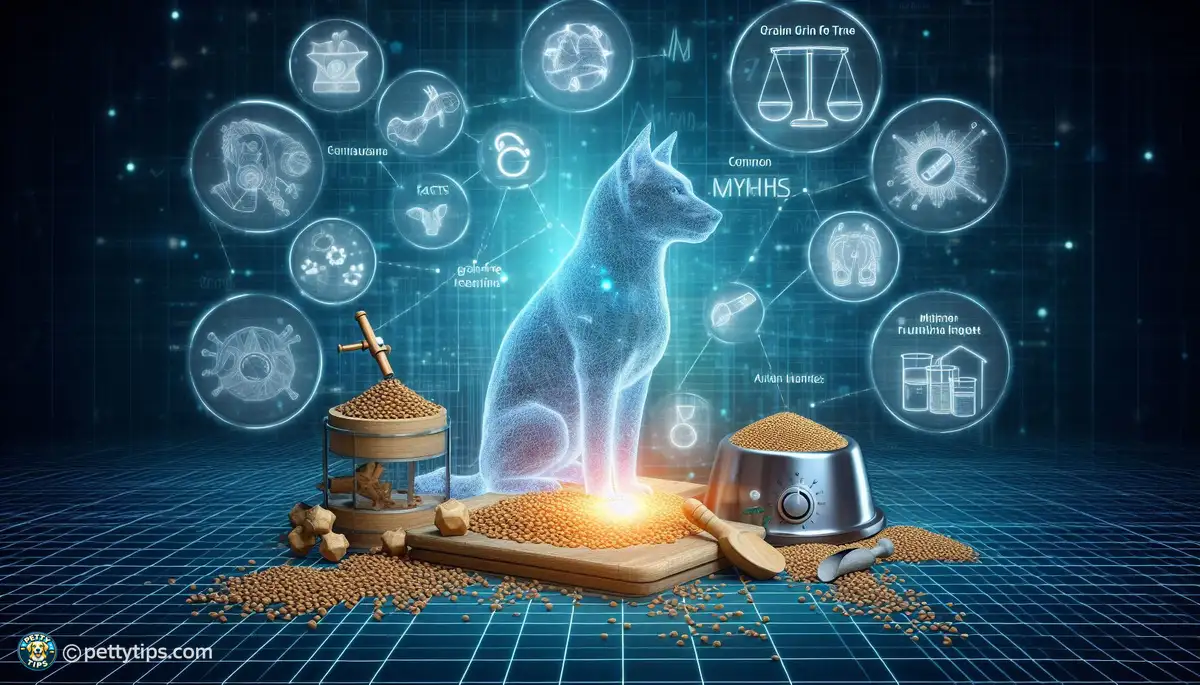
Essential Nutrients for Senior Pets
Giovanni Farina - Sep 29, 2024 - 6 min read


The popularity of grain-free pet diets has skyrocketed in recent years, with pet owners increasingly seeking out these formulations for their furry companions. Grain-free options promise a host of benefits, including improved digestion, allergy relief, and overall better health. But what exactly does "grain-free" mean, and is it truly the superior choice for our pets?
Grain-free diets for pets gained traction on the premise that dogs and cats are carnivores by nature, and grains like corn, wheat, and soy were not part of their ancestral diet. Proponents argue that eliminating these grains can address a range of health issues, from skin allergies to digestive problems. However, the validity of these claims has come under scrutiny in recent years.
One of the primary selling points of grain-free pet food is its purported ability to alleviate grain allergies in pets. However, it's essential to distinguish between true grain allergies and other sensitivities that may be causing discomfort for our furry friends.
While food allergies in pets are relatively rare, they can undoubtedly occur. When they do, common culprits include proteins like beef, chicken, or dairy, rather than grains. In fact, studies have shown that true grain allergies are infrequent in dogs and cats, making up only a small percentage of reported cases.
One of the concerns surrounding grain-free diets is whether they provide the necessary nutrients for optimal pet health. While these formulations often boast high protein content from sources like meat, they may lack essential vitamins, minerals, and fiber found in whole grains.
Without grains, pet food manufacturers must rely on alternative ingredients to meet nutritional requirements. However, some grain-free formulations may fall short in providing crucial nutrients like carbohydrates for energy, fiber for digestion, and certain vitamins and minerals essential for overall well-being.
Recent studies have raised alarms about a potential association between grain-free diets and an increased risk of dilated cardiomyopathy (DCM) in dogs. This serious condition affects the heart's ability to pump blood effectively and can lead to life-threatening complications if left untreated.
Taurine, an amino acid found primarily in animal-based protein sources, plays a crucial role in heart health for dogs and cats. Some researchers believe that the absence of grains in certain pet diets may contribute to taurine deficiency, thereby increasing the risk of DCM. However, more research is needed to fully understand this complex relationship.
The grain-free movement has prompted discussions about the environmental impact of pet food production. While eliminating grains may seem eco-friendly on the surface, it's essential to consider the broader implications of sourcing alternative ingredients.
Grains like corn and wheat are often abundant and relatively inexpensive compared to alternative ingredients used in grain-free pet diets. However, sustainable sourcing practices can mitigate environmental impact while ensuring that pets receive nutritionally balanced meals.
When it comes to choosing the right diet for your pet, it's crucial to consult with a qualified veterinarian. They can provide personalized recommendations based on your pet's age, breed, health status, and dietary preferences.
Every pet is unique, with their own set of nutritional requirements and sensitivities. While grain-free diets may be suitable for some pets, they may not be the best option for others. Ultimately, the goal is to find a balanced diet that supports your pet's overall health and well-being.
As pet owners, we all want what's best for our furry companions. However, navigating the complex landscape of pet nutrition can be challenging, especially with conflicting information and marketing hype surrounding grain-free diets.
While grain-free diets may have their place for certain pets, they are by no means a one-size-fits-all solution. By staying informed, consulting with professionals, and prioritizing our pets' health and wellness above all else, we can make the best choices for their nutritional needs. After all, a healthy pet is a happy pet!